What are Damages?
Damages are the monetary compensation awarded to the plaintiff in a civil lawsuit for the physical harm and financial losses they’ve suffered due to another party’s negligence or reckless behavior.
Compensatory damages, also known as actual damages, are awarded based on the economic losses and non-economic harm the injured person has suffered because of their injury.
Punitive damages are awarded to punish the defendant for particularly egregious behavior to deter others from engaging in similar behavior.
Economic Damages
Economic damages are compensation for quantifiable financial losses such as medical expenses, lost wages, and property damage.
Medical expenses includes any costs of treating the injury and are usually the largest component of economic damages. Common medical costs include:
- Emergency room visits
- Hospital stays
- Doctor’s appointments
- Surgery
- Medication
- Medical equipment (like crutches or a wheelchair)
- Physical therapy
- Hiring a caregiver
- Future anticipated medical needs
Lost wages are compensation for income the injured person could have earned while they were recovering and unable to work.
The plaintiff is also compensated for loss of future income if their injuries result in a permanent disability that affects future earning capacity.
Property damage includes the costs to repair and replace any belongings that were damaged by the defendant.
Compensation for property damage is most important in car accident cases to cover the cost of repairing or replacing the plaintiff’s vehicle.
Non-economic Damages
Non-economic damages compensation for intangible harm like pain and suffering, emotional distress, lost quality of life, and loss of consortium.
The monetary value of non-economic damages are not easily quantifiable, so the amount awarded is generally up to the judge or jury.
Pain and suffering includes any physical or emotional distress caused by the injury like chronic pain, temporary or permanent disability, scarring, etc.
Emotional distress refers to psychological symptoms like anxiety, depression, or PTSD that can result from traumatic experiences.
Loss of consortium allows the spouse of the injured person to recover for loss of services, assistance, companionship and intimacy in the relationship due to their spouse’s injuries. loss of consortium is most often awarded in wrongful death cases.
Lost quality of life is a broad term that encompasses the many ways a plaintiff’s injuries may limit their ability to enjoy life.
Common examples of how an injury may diminish a person’s quality of life include:
- Physical limitations – Injuries like spinal cord trauma, amputations, or severe burns can make routine activities like bathing, dressing, household chores extremely difficult or impossible without assistance.
- Mobility restrictions – People who suffer leg/knee/hip injuries may lose the ability to walk normally or have their mobility severely limited, confining them to wheelchairs or walkers.
- Chronic pain – Lingering, unresolved pain from injuries can hamper sleep, concentration, mood and overall quality of life on a daily basis.
- Loss of sexual function – Pelvic, reproductive or spine injuries can potentially impact sexual intimacy and function.
- Scarring/disfigurement – Severe burns, lacerations or other trauma can cause permanent scarring, disfigurement or bodily deformities that impact self-esteem.
- Inability to participate in hobbies/interests – Someone who loved hiking, dancing, playing sports etc. may completely lose the ability to pursue these cherished activities after a disabling injury.
- Social withdrawal – The effects of an injury, from chronic pain to embarrassment over scarring, can cause people to withdraw from social circles and activities they once enjoyed.
- Strained personal relationships – Personality changes, inability to perform household duties, or intimacy issues can take a toll on marriages and other close relationships.
Punitive Damages
Punitive damages are awarded to punish the defendant for egregious misconduct to deter others from engaging in similar behavior. Punitive damages are less common and typically only awarded in cases involving intentional harm or a blatant disregard for the rights and safety of others.
Examples of situations where punitive damages are awarded:
- Drunk driving accidents
- Sexual assault
- Nursing home abuse
- Intentional violence like assault or battery
- Fraud or intentional misconduct by a company
To warrant punitive damages, the defendant’s actions must demonstrate malice, willful disregard for others’ safety, extreme recklessness, or otherwise reprehensible conduct.
If you have any questions about damages, call (813) 273-0017 for a free consultation and case evaluation. Our personal injury attorneys will help determine what damages you’ve suffered and estimate the amount of compensation you may recover for your injury.

References
Florida Statute §768.72 – Pleading in civil actions; claim for punitive damages.
Florida Statute §768.81 – Comparative fault.














